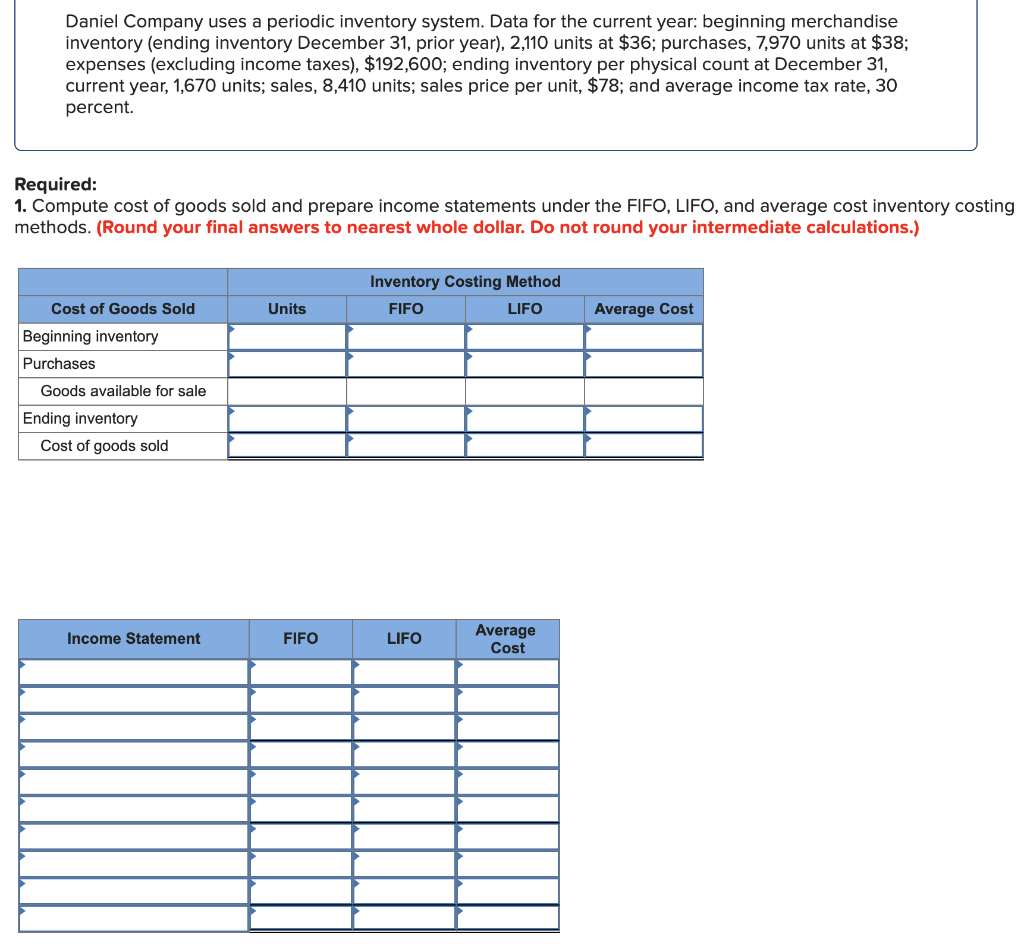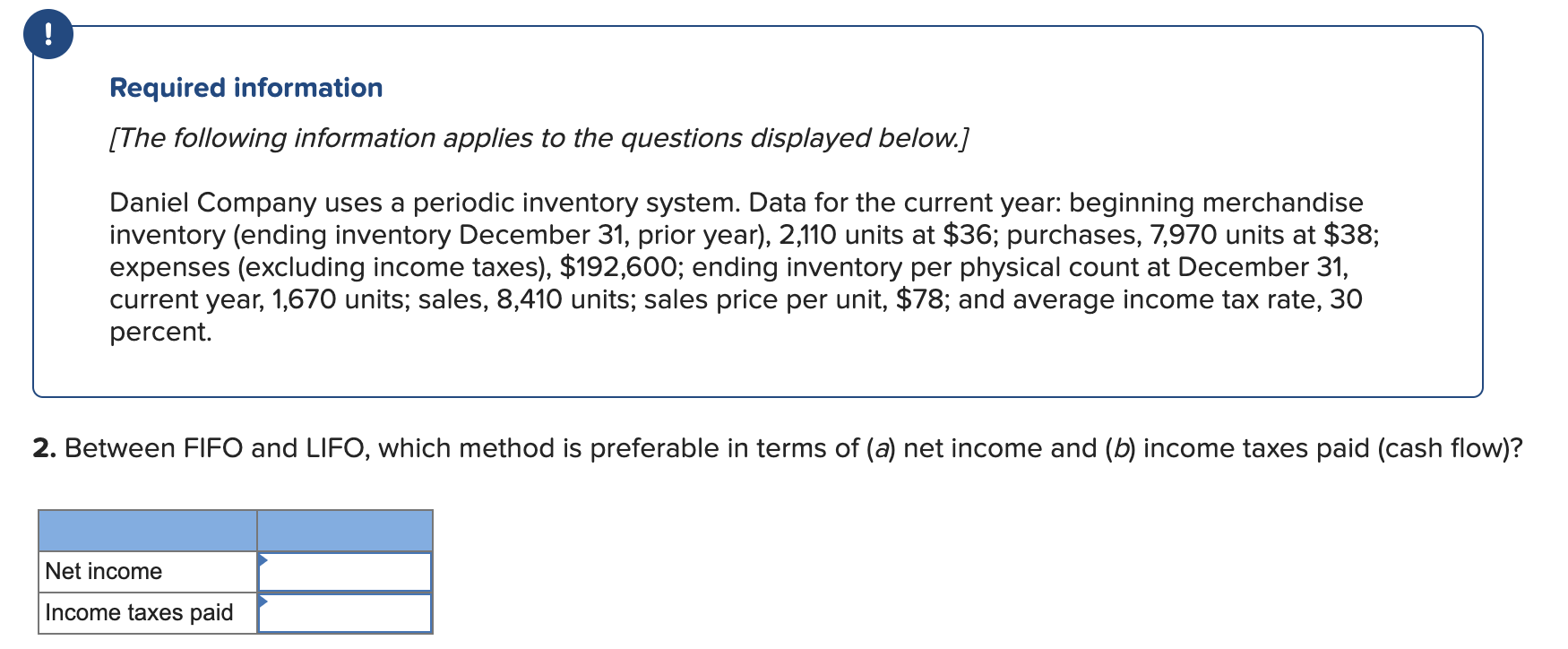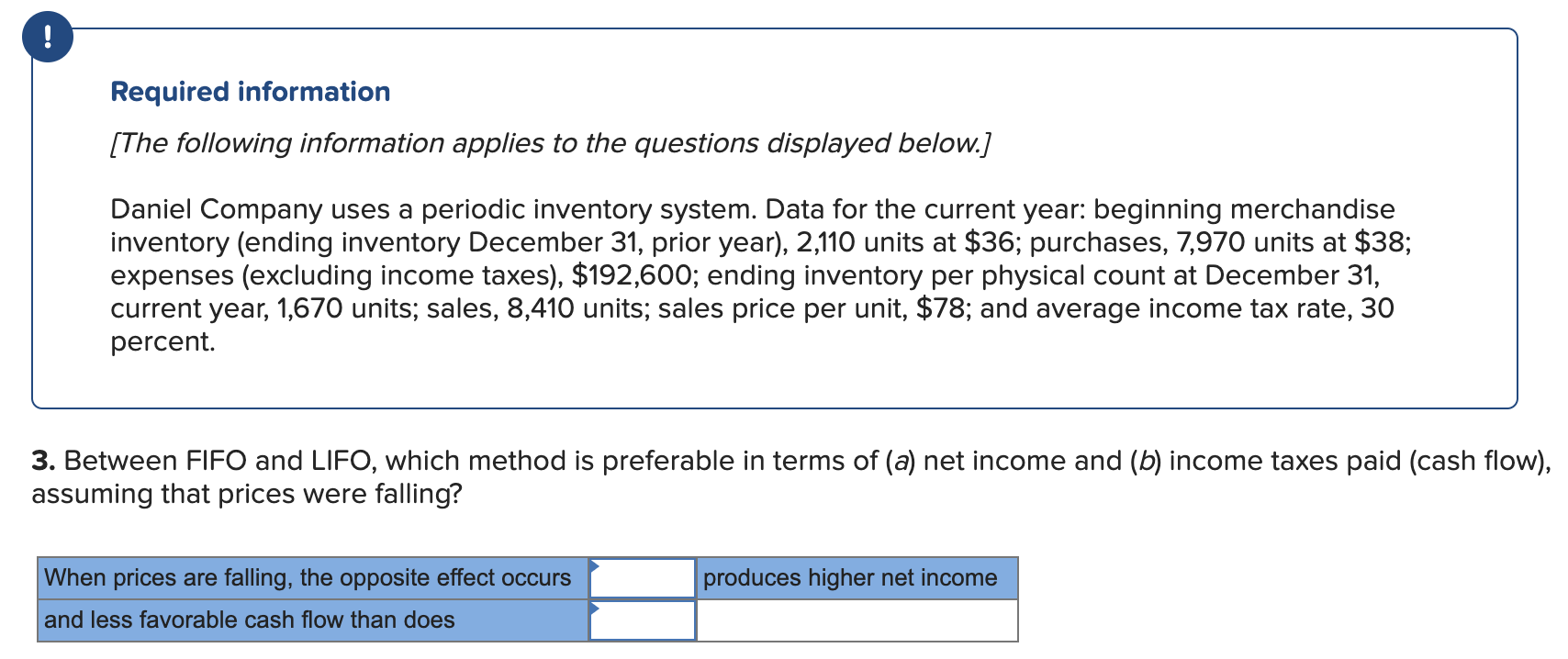


Daniel Company uses a periodic inventory system. Data for the current year: beginning merchandise inventory (ending inventory December 31, prior year), 2,110 units at $36; purchases, 7,970 units at $38; expenses (excluding income taxes), $192,600; ending inventory per physical count at December 31, current year, 1,670 units; sales, 8,410 units; sales price per unit, $78; and average income tax rate, 30 percent. Required: 1. Compute cost of goods sold and prepare income statements under the FIFO, LIFO, and average cost inventory costing methods. (Round your final answers to nearest whole dollar. Do not round your intermediate calculations.) Inventory Costing Method FIFO LIFO Average Cost Cost of Goods Sold Beginning inventory Purchases Goods available for sale Ending inventory Cost of goods sold Income Statement Average Cost Required information [The following information applies to the questions displayed below.] Daniel Company uses a periodic inventory system. Data for the current year: beginning merchandise inventory (ending inventory December 31, prior year), 2,110 units at $36; purchases, 7,970 units at $38; expenses (excluding income taxes), $192,600; ending inventory per physical count at December 31, current year, 1,670 units; sales, 8,410 units; sales price per unit, $78; and average income tax rate, 30 percent. 2. Between FIFO and LIFO, which method is preferable in terms of (a) net income and (b) income taxes paid (cash flow)? Net income Income taxes paid Required information [The following information applies to the questions displayed below.] Daniel Company uses a periodic inventory system. Data for the current year: beginning merchandise inventory (ending inventory December 31, prior year), 2,110 units at $36; purchases, 7,970 units at $38; expenses (excluding income taxes), $192,600; ending inventory per physical count at December 31, current year, 1,670 units; sales, 8,410 units; sales price per unit, $78; and average income tax rate, 30 percent. 3. Between FIFO and LIFO, which method is preferable in terms of (a) net income and (b) income taxes paid (cash flow), assuming that prices were falling? produces higher net income When prices are falling, the opposite effect occurs and less favorable cash flow than does









